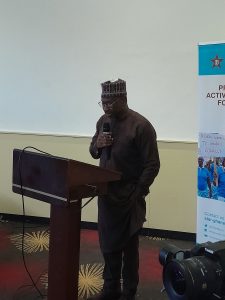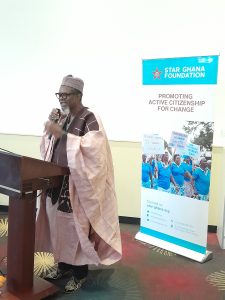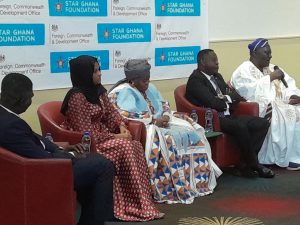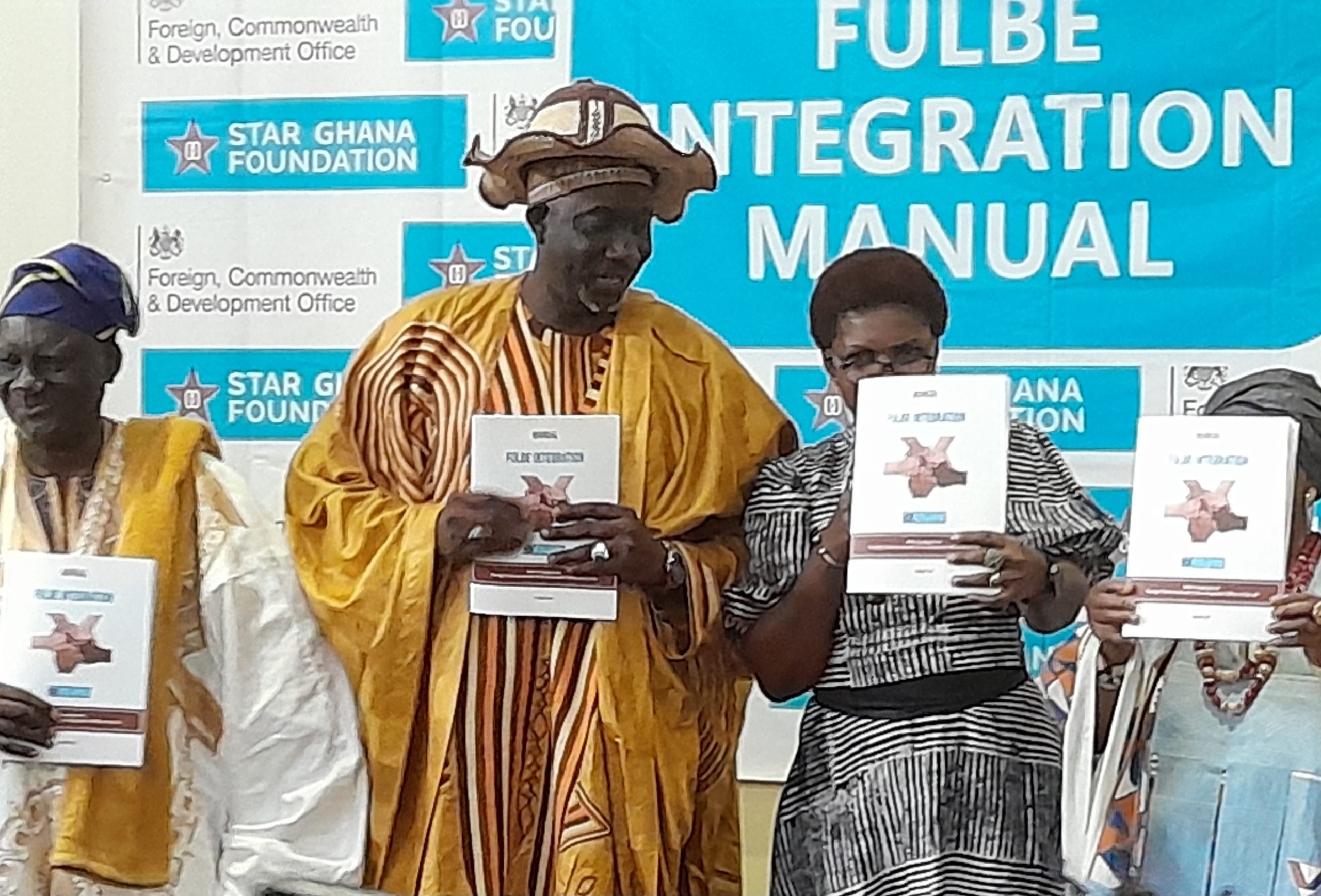
Accra, Ghana//-The STAR-Ghana Foundation launched the first-ever Fulbe Integration Manual to help promote and enhance the understanding, inclusion, and peaceful coexistence of the various ethnic groups with the Fulbe communities in Ghana.
The manual, being the first of its kind in Ghana, is a practical guide for policymakers, community leaders, and development partners.
The purpose of the manual according to various speakers at the launch in Accra is to strengthen intercultural relations, promote human rights and social cohesion, foster meaningful integration, and promote sustainable development of the country.
The Foundation which launched the manual in collaboration with partners said policymakers, community leaders, development partners, practitioners, and duty-bearers would be the key users of the manual.
The benefits of the manual among others are to equip users with the tools to foster meaningful integration and social cohesion, promote human rights and social cohesion, and integrate the Fulbe community in Ghana.
In his welcome address, the Executive Director of STAR Ghana Foundation, Amin Ibrahim-Tanko hoped the launch of the manual and what follows would stimulate conversations around key issues of integration, key issues of social prevention, and key issues around human rights and dignity in Ghana.
He noted: “STAR-Ghana with support from the Foreign Commonwealth & Development Office (FCDO) of the UK implementing several projects in northern Ghana, one of which is around peace and security in the north.
Now as we implement these things, the question that always comes up is what are the drivers of conflict and insecurity? What are the drivers of the lack of development?”
He continued that one of the drivers, one of the issues that constantly comes up is the issue of exclusion, the issue of the tagging of some groups of people as not belonging, as outside people, as not having the right to basic things.
That sense of exclusion Mr Ibrahim-Tanko said begins to drive a sense of resentment and that begins to fuel that.
“And I think that we all do know that in the north of Ghana, there are quite several social groups that we may see as excluded or marginalised.
We’ve talked about women in some communities and some ethnic groups. We’ve talked about so-called minority ethnic groups. We’ve talked about so-called settler groups. We’ve talked about young people also we’ve talked about Fulbes”.
These are communities, for one reason or the other, are communities that are excluded, that are marginalized. Some based on preconceived ideas, others on sociocultural factors, etc, Mr Ibrahim-Tanko added.

“But at the end of the day, the result is that some groups are excluded from the ability to exercise, to access and exercise their rights. Not just as Ghanaians, but as human beings.
The other groups are also important and we are working on them in other projects. What are some of the drivers of the Fulbe exclusion? What are some of the issues?
And what can we do? The manual starts from the assumption that it’s not just enough to recognize that something needs to be done and we need to build social cohesion”.
How it is done can address the issue or exacerbate the problem. And so, the manual is a guide for us to see how we can do it. Because we have seen lots of well-intentioned initiatives to address socio-cultural issues that have backfired”.
Some of the early attempts at gender integration, and gender equality, have ended up being some of the most explosive things. So, they came up with the manual to serve as a guide to help them with the Fulbe integration quagmire.
Sharing his thoughts at the launch, the Executive Secretary of the National Peace Council, Dr George Amoh, said: “We cannot say we are a state or a nation when sections of our society are not fully integrated”.
“I have a problem. I have been thinking about this country and how did we become a nation and I have tried to search the history of how the various traditional areas of our country decided that we wanted to become one nation. And whenever I do that my mind gets to a point, I’m unable to convince myself whether we are still a nation. Why because there are so many divisions in our country”.
He indicated that when he assumed office as Executive Secretary of the National Peace Council, his mission was to build cohesion in the country and various sections of the society after realizing the country was not well integrated.
Dr Amoh noted that for instance the people from the Volta Region, the Zongo communities which are found in most of the cities and peri-urban areas across the country, and the Fulbe communities are not well integrated.
He lamented: “We as a people have not taken the time, deliberate policies to get all sections of our society well integrated. This is something that I believe every government that seeks the interest of our country and the people of Ghana will have to do”.
Building a nation is not only building roads, bridges, educational institutions, and jobs but building an integrated country is the most important element. That is what I think that we should focus on, Dr Amoh stated.
He was happy that STAR-Ghana has taken upon itself and thanked the Foreign Commonwealth & Development Office (FCDO) of the UK for granting the support, highlighting that “we must integrate our country and make it more integrated than we come to meet it”.
The Chief of the National Council of Fulani Chiefs, Alhaji Iddrisu Mohammed Bingle said he was so happy to be part of the manual launch and described it as “a great initiative by STAR Ghana”.
“On behalf of the Fulbe community, I congratulate STAR Ghana for this great initiative”.
As they say, the truth shall always rein. People have been spreading some misinformation about the Fulbe. With the launch of the manual, the truth is out for all to see, Alhaji Bingle said.

Security Policy and Programme Associate for the West African Stability Programme at the FCDO, Madam Rhemah Forkuo who witnessed the launch said today marked a very significant milestone in their collective efforts to foster inclusion, cohesion, and sustainable development.
The newly launched manual Madam Forkuo is not just a document but a roadmap, tool and commitment to ensuring that policies, programmes and local initiatives are informed and more inclusive and truly reflected on the realities of what is on the ground.
She said her outfit had been working with STAR-Ghana for about eight years.
“We value our relationship with STAR-Ghana because one of the priorities of FCDO is to deepen our national security priority and one of our aims at the West African Stability Programme is to increase community resilient which is why STAR-Ghana is working with us to integrate the Fulbe into various communities of the country”.
Giving the overview of the manual, the Head of Programmes of STAR Ghana Foundation, Madam Eunice Rachael Agbenyadze said : “There are a several national and international laws and conventions that advocates for the political, social, economic and cultural integration of the Fulbe in Ghana can draw on to make their case”.
These are she mentioned include the 1992 Republican Constitution of Ghana (Amendment Act,1996) has clear provisions bordering on the citizenship and human rights of the Fulbe.
Fulbe who are citizens of Ghana just like their non-Fulbe counterparts are protected by the 1992 Constitution, Madam Agbenyadze said.
In a panel discussion moderated by Umaru Sanda Amadu, a broadcast journalist at CITI FM and Channel One TV, the panelist comprising the Chief of Sakpe in the Northern Region, Sakpe Naa Alabira Ibrahim; a leading researcher, Dr Chrysogunus Anab; Chief of YelzoliGaa in the Northern Region, Naa Hawa; a student of Ghana Institute of Journalist who represented the Fulbe Community; and Dr Amoh called for a deliberate actions to swiftly integrate the Fulbes in the country.

The full copy of the manual be read here: file:///Users/masahudu/Downloads/fulbe%20report%20design%20-%20Updated-1.pdf.


